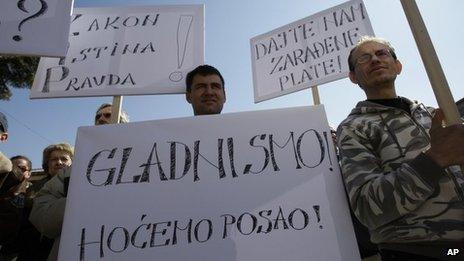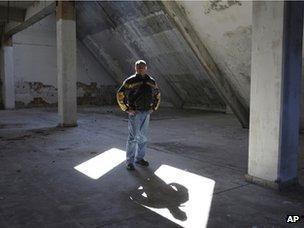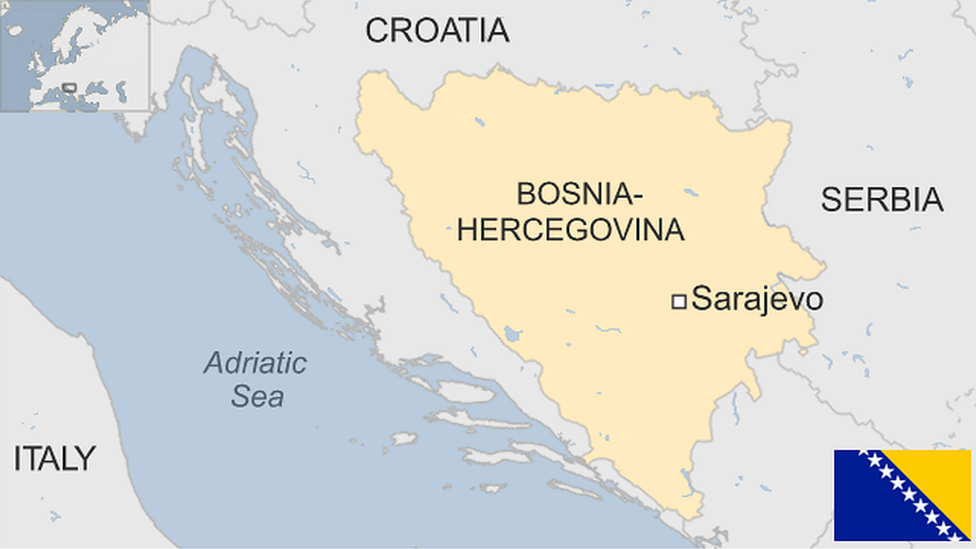Bosnia town holds 'funeral' to protest at unemployment
- Published

Drvar's mayor, Stevica Lukac, urged the crowd at the funeral not to lose hope
Hundreds of people in western Bosnia-Hercegovina have held a mock funeral for their own town to protest at the state of the economy and unemployment.
The closure two months ago of the last major company in Drvar left 300 people jobless and sent its unemployment rate to 80% - double the national average.
On Monday, locals lit candles for the soul of the town and put up traditional obituary placards declaring its death.
They accused the authorities of not doing enough to revive Drvar's economy.
The town had 17,000 residents before the Bosnian war in the early 1990s, but it suffered extensive damage and the mainly Bosnian Serb population fled when it eventually fell to the Bosnian Croat army.
The 1995 Dayton peace accord set up two separate entities - a Bosniak-Croat Federation of Bosnia and Hercegovina, and the Bosnian Serb Republic, or Republika Srpska.
Drvar ended up in the former, which many residents - including the 5,000 Serbs who returned to their homes - blamed for its neglected status.
The carpet and paper factories which were damaged during the war were never rebuilt, while other companies were sold by regional authorities to Croatian firms, who laid off all the workers and sold off whatever remained, the residents said.

Drvar suffered extensive damage during the Bosnian war in the early 1990s
Local trade union official Mico Rakic said the recent collapse of the local wood mill meant another 300 people had lost their livelihoods. They were owed months of wages and were now relying on donations from their pensioner parents, he added.
"Drvar's backbone has been broken. This symbolic funeral should serve as an eye-opener for the regional authorities," Mr Rakic told Associated Press. "They must see that these people have nothing to eat."
Drvar's mayor, Stevica Lukac, appeared at the mock funeral at the local Serbian Orthodox church but urged the crowd not to lose hope.
Bosnia's unemployment rate rose to more than 44% in February, and a recent UN survey found that 75% of young people in the country did not have a job and more than 50% would leave the country given the chance.
- Published7 February
